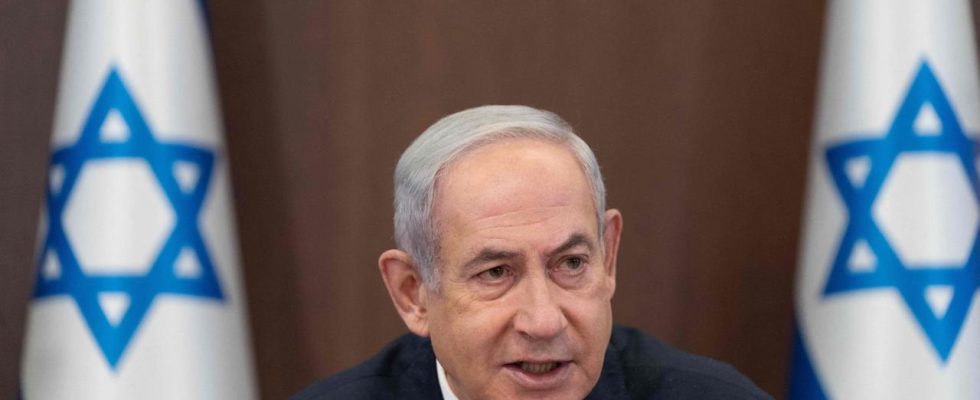An important point in the Israeli Prime Minister’s speech to the UN General Assembly is likely to be the planned rapprochement agreement with Saudi Arabia. Netanyahu describes this as “within reach.” But there are high hurdles.
While many heads of state and government are attending the United Nations General Assembly in New York these days, negotiations are underway in the background about a deal that could radically change not only the Middle East. On the surface, in quotation marks, it is all about a normalization agreement between Israel and Saudi Arabia. That would be a sensation in itself.
But the relationships that are to be built would also be an important building block for new trade routes from Asia to Europe, which are intended to be an alternative to the Chinese “New Silk Road” project. And then Israeli Prime Minister Benjamin Netanyahu brought up what was still at stake during his meeting with US President Joe Biden.
“I believe under your leadership, Mr. President, we can forge a historic peace between Israel and Saudi Arabia,” Netanyahu said. This would be a major step “towards an end to the Arab-Israeli conflict and reconciliation between the Islamic world and the Jewish state.” It would also “move us toward real peace between Israel and the Palestinians.” That is “within reach,” said Netanyahu.
Security circles fear for Deterrent potential
The problem is: for this deal to happen, Israel has to deliver. The demands from Saudi Arabia are great: modern weapons systems are on the wish list. And the civil use of nuclear power. But there is great concern in Israel about a possible resulting military nuclear program. Security circles fear that Israel, which itself has nuclear weapons, could lose its deterrent potential.
Opposition leader Yair Lapid therefore warned Netanyahu not to agree to Riyadh’s request. And former Prime Minister Ehud Barak said on Israeli Army Radio: The possibility for developments with Saudi Arabia is “very important,” said Barak. “But allowing a country with a lot of oil to develop nuclear energy on Saudi territory is a very serious problem.” If Iran becomes a nuclear power, Saudi Arabia will too – and so will Turkey and Egypt. “And then the idea of Israel’s military superiority is over.”
Hardly anything in his hand
Then there is another request from Saudi Arabia that is likely to cause a similar headache for Netanyahu. The demand for concessions to the Palestinians. It is not yet entirely clear how much Saudi Arabia actually wants to achieve for the Palestinians, whether it is just about improving living conditions or about prospects for a Palestinian state. One thing is clear: Netanyahu’s right-wing extremist government partners reject any kind of concession, according to Orit Struck, minister in the government for settlement construction.
“I don’t know whether our prime minister will return with an agreement with Saudi Arabia. But I know that we have a contract with God over this country,” said Struck. It is a “long-term contract that cannot be terminated.” They are committed to this contract “and God is also committed to our contract. We are here to stay, to become stronger and to grow.”
Netanyahu will certainly address the potential historic deal with Saudi Arabia in his speech to the United Nations. He will probably get applause for that too. But on the flight back to Israel at the latest, it will probably become clear to him that he has little control over his current government coalition to make such a deal possible.

